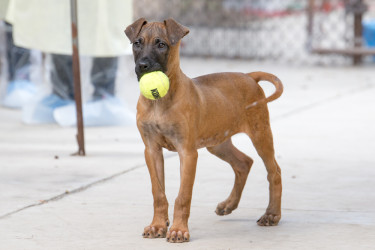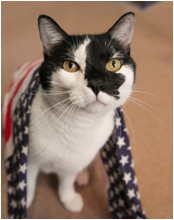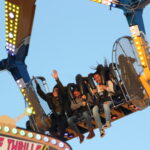
San Diego, CA–A male snow leopard at the San Diego Zoo is suspected to be positive for SARS-CoV-2, the virus that causes COVID-19, zoo officials report.
On Thursday, wildlife care specialists noticed that the snow leopard had a cough and nasal discharge. Fecal samples collected from the snow leopard and tested at the zoo confirmed the presence of SARS-CoV-2. The results were sent to the California Animal Health and Food Safety Laboratory System for further testing, and those results also were positive. All positive tests for SARS-CoV-2 are required to be sent to the U.S. Department of Agriculture National Veterinary Services Laboratories, where the results are still pending.
The male snow leopard appears to be doing well and is showing no additional symptoms other than the cough and runny nose. He shares his habitat with a female snow leopard and two Amur leopards. San Diego Zoo Wildlife Alliance veterinarians assume these three individuals have also been exposed. They are currently being quarantined in their habitat. Veterinarians are monitoring them closely and will treat symptoms as they may arise. Because these Amur leopards and snow leopards are being quarantined, their habitat will be closed to Zoo visitors until further notice.
It is not yet known how the male snow leopard acquired the infection. San Diego Zoo Wildlife Alliance has always had biosecurity protocols in place and adopted heightened protocols around wildlife at the onset of the pandemic last year. The San Diego Zoo and the San Diego Zoo Safari Park’s biosecurity practices include the use of personal protective equipment (PPE), cleaning and disinfection protocols, quarantine procedures for new arrivals, and preventive medicine practices, such as vaccination. All employees are provided N95 face masks, and employees who are not vaccinated are required to wear masks and practice health and safety protocols at all times. Despite these protocols, the transmission of the COVID-19 virus has occurred, and this highlights the challenges we all face together in combating this highly contagious virus, said Dwight Scott, executive director, San Diego Zoo.
“While we await the results of tests to determine if the snow leopard is positive for the virus that causes COVID-19, we can assure you the snow leopard and the Amur leopards who share his habitat are receiving excellent care,” said Scott. “Our veterinary teams and wildlife care specialists at both the Zoo and Safari Park are highly skilled, dedicated professionals who work tirelessly to ensure the well-being of the wildlife in our care.”
Scott added that guests visiting the San Diego Zoo should feel confident in knowing they are not at risk from the wildlife they may encounter during their visit. San Diego Zoo Wildlife Alliance follows county and state health and safety guidelines and asks guests who are not fully vaccinated to wear a mask and practice social distancing during their visit.
San Diego Zoo Wildlife Alliance recently received a donation of recombinant purified spike protein vaccine, intended for use in protecting animals against SARS-CoV-2. The vaccine doses were donated by Zoetis, an animal health company, and are strictly intended for nonhuman use. The veterinary teams and wildlife care specialists at both the San Diego Zoo and Safari Park are in the process of administering the vaccine doses as quickly as can responsibly be done, as a preventative measure for wildlife most at risk of contracting the virus—including felids like leopards, lions, tigers, cheetahs, jaguars, mountain lions, and others. The male snow leopard had not yet been vaccinated.
San Diego Zoo Wildlife Alliance provides the best possible care for the wildlife at its two parks and its conservation projects around the world. As part of this effort, preventive medicine is practiced to protect wildlife, including rare and endangered species, against diseases that may harm them. Vaccinating susceptible species against infectious diseases is one such tool to protect wildlife and reduce the spread of disease. Examples of vaccinations used in some species include those designed to protect wildlife against rabies, West Nile virus, seasonal influenza, measles, and canine distemper. Vaccinating wildlife in human care is a common practice around the world, and has helped to ensure that endangered and threatened species like black-footed ferrets, California condors, gorillas, and cheetahs are protected.
In January, the gorilla troop at the Safari Park contracted SARS-CoV-2 from an asymptomatic wildlife care specialist. The troop has fully recovered. San Diego Zoo Wildlife Alliance is sharing information on what is being learned from documentation of the SARS-CoV-2 virus in gorillas at the San Diego Zoo Safari Park—and also what is being learned from the snow leopard at the San Diego Zoo—among global conservation organizations and wildlife care professionals at over 200 zoos worldwide. The organization will continue to share what it has learned regarding disease transmission, biosecurity protocols in managed care and field settings, treatment and prevention, and the implications to ensuring optimal health outcomes for wildlife globally.







